|
Six years ago, when the Scotland's People website was relaunched with an entirely new interface, there were serious problems when it went live. I wrote about these problems on a number of occasions. (here, here, here and here). Over the course of the next six months or so, the developers gradually fixed some of these problems (see here and here). Obviously, when a major new website is launched, you can expect some minor problems, but it was clear that many of the problems should have been picked up during testing before the new site was launched. It was also clear that some problems could also have been detected had there been proper engagement with site users. So it's more than a little dispiriting, if perhaps not entirely surprising, to find ourselves back in the same situation with another "upgrade" to the website. In the last few years, the National Records of Scotland have not done themselves any favours in terms of public relations, with what could charitably be described as a reluctance to engage with users, which led me to prepare an open letter - signed by over a hundred genealogists, researchers and historians - to the head of NRS, Paul Lowe, to which the response was underwhelming to say the least. On Wednesday, the Scotland's People site was down (and the centres closed) for a new upgrade. Communication about this was typically poor. I'm aware of one person who had a booking at one of the satellite centres who, when they contacted the centre to rearrange their visit, was told that the centre knew nothing of this down time! So it was with a degree of trepidation that I visited the revamped website on Thursday when it came back online. And the problems were not hard to find. One common technique Scottish researchers use is to search for the death of a married woman under two surnames, her maiden name and her married name. This makes it much easier to identify the correct record before you pay for it. And this was a major problem in 2016. So I searched for a death I knew was there - Margaret Carstairs died in Crail in 1857 age 49. This was the result: Now I knew that Margaret's married name was Graham, so I repeated the same search changing only the surname: Notice that the reference details are identical - so this is the same record, indexed under both Carstairs and Graham. So if I searched the records using both surnames, I should get this record again. Here's what happens though: When they relaunched the site in 2016, this search was also broken, but in a different way - if you searched for a death with two surnames, it returned all results with either surname (a Boolean OR) rather than results with both surnames (a Boolean AND). This time round, the search fails altogether. This is far from the only issue though. The SP home page has a big friendly box to get you started, where you can enter a name and a date range and search across all the records Running that search shows the following results summary: If you then click through to the any of the results for Old Parish Registers, it passes the date range as 17010101 to 17100101 (in other words 1 January 1701 to 1 January 1710). What that means is that any events recorded from 2 January 1710 to 31 December 1710 will be missed, even though they are there. In 2016, I wrote about the strange results for Coupar Angus. This bug was fairly easy to explain - for some reason Coupar Angus had been assigned to the county of Forfar, whereas all other parishes in the same county were assigned to Angus. (Angus and Forfarshire are two different names for the same county). A minor issue, but one that is simply down to the way the data was recorded. So I was curious to see if Coupar Angus was behaving itself. I searched for deaths in Coupar Angus between 1855 and 1900, and this is what was returned: I'm sure we'd have heard if the good folk of Coupar Angus had discovered immortality, so this result seemed unlikely. So I removed the date range to see if that made any difference and suddenly the deaths were revealed: But even that's not the end of the problems for Coupar Angus. I repeated the search removing the sort order and got the following results: Last time I checked, Auchterarder and Perth were not Coupar Angus, so quite why those results appeared there is beyond me. One issue with the original launch was the way filenames were assigned to saved images. Back then, when you saved an image, the files were simply given a datestamp as the filename - not very useful if like me you have thousands of images downloaded from Scotland's People. Five months after the relaunch, this was fixed so that images were automatically given meaningful filenames that allowed you to identify the record type, the year, registration district and so on. Unfortunately, that problem is back - now the default filename is "ScotlandsPeople_imagenameraw", which is not very helpful at all, and would rapidly become unmanageable if you save large numbers of files. At the bottom left of each search results page is a list of handy links to other record sets in the same category (Statutory Registers, Church records and so on). Every single one of these links was initially broken, although they now appear to be working. Although this problem has now seemingly been resolved, checking for broken links is a basic feature of pre-launch testing, but clearly it wasn't done. A search for Carstairs births in Crail 1926-1950 produces 217 results, none of which are from Crail. There are however 9 results from Dunfermline, which is at least in the same county - Fife - as Crail. However, if you then search for Carstairs births in Dunfermline in the same period, you get the following results: So there are Carstairs births in Dunfermline in this period, but you can't find them by searching for, well, Carstairs births in Dunfermline.
There are other issues, but I think by now you're getting the picture, and this post is long enough as it is. It's abundantly clear that once again, the NRS have launched an update that is not fit for purpose. It's hard to see how these bugs could have slipped through a properly designed testing regime. The implication is that the testing regime was at best inadequate. Some at least of these problems could readily have been avoided had there been advance consultation with users. As someone who's used Scotland's People and its forerunner Scots Origins since it was first launched in 1998 - I was one of the first 100 people to register with the site - I've previously offered to test updates free of charge. One of the key demands of our open letter was the establishment of a meaningful user group, something that the NRS management do not seem inclined to agree to. Perhaps this latest avoidable fiasco could change their minds. For users, my advice would be not to trust any negative results and either postpone your research until they fix these problems, or else think creatively when searching - or be prepared for long trawls through irrelevant results. PS None of this bodes well for the much-delayed launch of the 1921 census, which according to the NRS' own deadline is due to launch in the next 35 days. Fingers crossed they don't mess that up as well.
4 Comments
Today the National Records of Scotland broke radio silence on the much-delayed publication of the 1921 census. I won't go into the details of the sorry saga surrounding the release of these records - suffice to say this has not been the NRS' finest hour. Indexing is about 60% complete. The contract was signed in January, and the NRS are now saying they are "confident" they will publish before the end of the year, whereas a few months ago they were saying they "will" publish in the second half of this year, it seems likely we'll have to wait a few months yet before we can finally see the first census after World War One.
It seems opportune therefore to set out what to expect when the census is eventually released. From the first census in 1801, the amount of information gathered increased regularly, making the census returns more useful for historians and genealogists alike. The 1921 census continued that process, including more information than its 1911 counterpart. The individual household schedules are not being published - instead, what we will see are the enumeration books. It's important to understand the difference - the household schedules were filled in by the residents, usually by the head of household. The enumeration books are transcriptions of those schedules carried out by enumerators - individuals employed by the census office. So unlike the English equivalent, you won't be able to see your ancestors' handwriting.
The other change in terms of what the NRS are producing, is that once the indexing has been completed and the images published on Scotland's People, a complete transcription of all the fields will be produced as part of the contract. This is something academic historians have long been pushing for, as it makes all sorts of historical research possible in a way that isn't feasible with indexed images alone. As yet, though, it's not clear if this transcription will be made publicly available when it is eventually complete.
Open Letter to Paul Lowe, Registrar General and Keeper of the Records of Scotland 2022 is Scotland’s Year of Stories, but the tradition of historian-storytellers is in danger of being suffocated by an unacceptable lack of access to our national records. As a group of historical and other researchers, ranging from senior academics to students, from professional genealogists and independent researchers to local and family historians, we share a love of Scotland’s history and of telling its stories to the world. The National Records of Scotland (NRS) is restricting access to Scotland’s national archive with significant negative impacts on Scottish culture, education, economy and tourism. While we understood the need for access restrictions during the height of the pandemic, our research endeavours and our small businesses continue to be negatively impacted by NRS restrictions. The NRS’ restricted access policy has real life impacts:
Fourteen months on from the partial reopening of the Historical Search Room and the Scotland’s People Centre in Edinburgh, access remains heavily – and unreasonably – restricted. NRS takes weeks to respond to enquiry e-mails, and visits must be booked weeks in advance, with the gap between visits currently anywhere between 5 and 8 weeks. This is unacceptable – the nature of historical research means researchers often have to follow a chain of records to a conclusion, with one source leading to another and another. To view more than 12 documents one must book another slot, leading to weeks more of delays. This causes significant problems for research students, who are unable to progress their thesis timeously, with obvious consequences for their mental health. The policy effectively prohibits international research in Scottish history as no-one will travel to view only 12 documents. Academics are very unlikely to obtain funding for such limited research. This has the practical effect of reducing international interest in Scottish history. Ancestral tourism – an important lucrative growth market fuelled by numerous TV programmes and recognised by both Visit Scotland and the Scottish Government – is also affected. Every year thousands of members of the Scottish diaspora make a once in a lifetime journey home to Scotland from all over the world to research their family history and visit their ancestral places. We are aware of visitors from Australia, Canada and the US who have been sorely disappointed to learn that their plans to research their personal history have been thwarted. Meanwhile, public communication from the National Records of Scotland has been very poor. Only rarely are plans for reopening set out in advance. We are not aware of any meaningful engagement with stakeholders regarding plans to reopen the archives. We are left to scan thousands of words describing service status at the NRS to work out what, if anything, has changed. TNA in London and PRONI in Belfast are operating normally. Significantly, both organisations work closely with active user groups to discuss issues affecting researchers and consult with them more generally. NRS has no equivalent group and any consultation with users is limited and opaque. Meanwhile, Scottish local archives, with far fewer resources, allow researchers to visit the archives with a minimum of fuss. Other national bodies, such as the National Library of Scotland (NLS), provide an excellent service to researchers. The frontline staff at NRS have been exemplary under very difficult circumstances, but the strategic operational decisions resulting in continued difficulties are incomprehensible. The NRS is lagging embarrassingly far behind its peers, both within and furth of Scotland. Informal approaches and formal complaints to the NRS have not produced any meaningful improvement in the situation. This is unacceptable. We therefore call on the NRS and, where appropriate, the Scottish Government:
The historical records of Scotland are internationally renowned. They are part of our national heritage and tell a story which resonates with countless people within Scotland and beyond. It is a fundamental duty of the NRS, as the custodian of our heritage, to make those records available to all of us. At present, it is singularly failing in that duty. Signatories:
Lynn Abrams, Professor of Modern History, University of Glasgow Thomas Ahnert, Professor of Intellectual History, University of Edinburgh Dr Barbara Ball, University of Strathclyde Julie Belcher, postgraduate student, University of Strathclyde Dr Amy Blakeway, Lecturer in Scottish History, University of St Andrews Michelle D Brock, Associate Professor of History, Washington and Lee University Michael H Brown, Professor of Scottish History, University of St Andrews John W Cairns, Professor of Civil Law, University of Edinburgh Ewen A Cameron, Sir William Fraser Professor of Scottish History, University of Edinburgh Martin Chick, Professor of Economic History, University of Edinburgh John Cleary, Associate Professor, School of Social Sciences, Heriot-Watt University Margaret Connolly, Professor of Palaeography and Codicology, University of St Andrews Dr Bryony Coombs, University of Edinburgh Ashlyn Cudney, PhD student, University of Edinburgh Tunji David Lees, postgraduate student, University of Strathclyde Jack Davis, Genealogist, Thistle Heritage Services Jane Dawson, John Laing Professor Emerita of Reformation History, University of Edinburgh Juliette Desportes, PhD student, University of Glasgow Jean Dickson, genealogist, Edinburgh Dr Laura I Doak, Convenor, Economic and Social History Society for Scotland, University of Dundee Irene Docherty, Genealogist, Bradford Susie Douglas, Professional Genealogist, Historian and Writer at Borders Ancestry, Coldstream Elizabeth Ewan, Professor of History and Scottish Studies, University of Guelph Susan Fabbro, professional genealogist, Edinburgh John Finlay, Professor of Scots Law, University of Glasgow J D Ford, Professor of Civil Law, University of Aberdeen Adam Fox, Professor of Social History, University of Edinburgh Dr Ewan Gibbs, lecturer, Social and Political Sciences, University of Glasgow Mark Godfrey, Professor of Legal History, University of Glasgow Prof Julian Goodare, University of Edinburgh Michael Graham, Professor of History, University of Akron Kevin Hall, PhD student, University of Edinburgh Philip A Hannay, managing director, Cloch Solicitors Jane Harris, genealogist, Janealogy Graham S Holton, Principal Tutor, Genealogical Studies, University of Strathclyde Prof James Hunter, University of the Highlands and Islands Prof Louise A Jackson, School of History, Classics & Archaeology, University of Edinburgh Emma Jolly, genealogist and writer, Edinburgh Dr Ciaran Jones, independent researcher Dr Allan Kennedy, lecturer, University of Dundee Dr Chloë Kennedy, Senior Lecturer in Criminal Law, University of Edinburgh Kate Keter, Genealogist, Family Tree Tales Lorna Kinnaird, Family History Researcher, Dunedin Links Alice Krzanich, early career researcher in Scottish legal history, Edinburgh Chris Langley, Reader in Early Modern History at Newman University, Birmingham Dr Darren S Layne, Curator, The Jacobite Database of 1745 Harry Lewis, PhD student, University of Edinburgh Penny Lewis, professional genealogist, Findo Gask Dr Clare Loughlin, University of Stirling Lorna MacBean, Doctoral Researcher, University of Glasgow Dr Alan MacDonald, Associate Dean for Quality and Academic Standards, University of Dundee Alasdair F Macdonald, Teaching Fellow, Genealogical Studies Postgraduate Programme, University of Strathclyde Alastair Macdonald, Senior Lecturer in History, University of Aberdeen Neil D M MacLeod, Solicitor, Edinburgh Hector L MacQueen, Emeritus Professor of Private Law, University of Edinburgh, Vice-President, The Stair Society Dr Rebecca Mason, University of Glasgow Tony Mathieson, postgraduate student, University of Strathclyde Tahitia McCabe, PhD student and Course Director, Genealogical, Palaeographic and Heraldic Studies, University of Strathclyde Catherine McFarlane, postgraduate student, University of Strathclyde Holly Mckenna, postgraduate researcher, School of Law, University of Glasgow Dr Carol McKinven, genealogist and archival researcher, Scottish Kin Dr Esther Mijers, Senior Lecturer in Scottish History, University of Edinburgh Dr Graeme S. Millen, ECR/Associate Staff, University of Dundee Prof Steve Murdoch, Swedish Defence University, Stockholm Stana Nenadic, Professor of Social and Cultural History, University of Edinburgh Trisha O’Reilly, postgraduate student, University of Strathclyde Chris Paton, genealogist, ScotlandsGreatestStory.co.uk Morag Peers, writer, genealogist and postgraduate student, University of Strathclyde Dr Alasdair Raffe, Senior Lecturer in History, University of Edinburgh Ieuan Rees, independent researcher Dr Jamie Reid-Baxter, Hon Research Associate, School of Critical Studies, University of Glasgow Michael Riordan, Independent Historian, Edinburgh Richard Rodger, Emeritus Professor, University of Edinburgh Calum M Ross, Solicitor, Edinburgh Sian Salt, Freelance TV Producer and genealogist The Scottish Historical Review Trust Fergus Smith, independent researcher, OldScottish.com Janice Smith, genealogist and family historian, Roslin Roots Laura A M Stewart, Professor of Early Modern British History, Head of the Department of History, University of York Lorraine Stewart, Genealogist, Kincardineshire Ancestors Dr Siobhan Talbott, Reader, Keele University Tania Taylor, postgraduate student, Strathclyde University Prof Annie Tindley, Head of the School of History, Classics & Archaeology, Newcastle University Dr Sally Tuckett, University of Glasgow Sarah van Eyndhoven, historical linguistics PhD student, University of Edinburgh Kirsty F Wilkinson, research manager, AncestryProGenealogists Charles W J Withers, Professor Emeritus of Historical Geography, University of Edinburgh, Geographer Royal for Scotland Prof David Worthington, Head, Centre for History, University of the Highlands and Islands Scott Wortley, Lecturer in Private Law, University of Edinburgh Dr Kathrin Zickermann, lecturer in history, University of the Highlands and Islands I've long been an evangelist for the idea that family historians should study the law. I don't mean that every would-be genealogist should go to law school, but simply that an understanding of the law as it stood when our ancestors lived is often as important as a general understanding of the social history of the era in question. Not just because the way our ancestors lived, worked and loved were all to some degree governed by law, but more importantly, because so many of the records we use as family historians to research the lives of our ancestors were creations of law. Take the fundamental records we use to start researching our ancestry - the core records that allow us to build a bare bones family tree and allow us to do genealogy proper (as opposed to family history): birth, death and marriage records. The very existence of these basic building blocks is a matter of law: in Scotland civil registration was introduced from 1855 under An Act to provide for the better Registration of Births, Deaths and Marriages in Scotland, better known as the Registration of Births, Deaths and Marriages (Scotland) Act of 1854. Take the birth record so familiar to any Scottish genealogist and available from Scotland's People. The format and contents of such records were laid out in detail in the 1854 Act, as shown by the example entry given as Schedule (A) shown above. But more importantly, the rules governing the creation, content and management of these records are also laid down by the Act. Understanding these rules is key to understanding what the records are telling us, and how we can use this information in our research. The 77 Sections of the Act set out the rules for the operation of the system of civil registration. Moreover, Section 57 required the Registrar General to maintain indexes to all the register entries from across Scotland, and to make those indexes available for the public to search. This laid the foundations for a system that almost 150 years later would lead to the Scotland's People website and centres, without which modern Scottish genealogical research would be unimaginable. Another core record used by every Scottish genealogist is of course the census. Take for instance the 1861 census. The rules for the operation of the 1861 census in Scotland were set out in Section 5 of the Census (Scotland) Act of 1860, which also stipulated the information to be provided: It's clear that the format and content of the census records as we see them are defined by the legislation setting out the operation of the census. It also clarifies the intended significance of the second-last column in the 1861 census - whether children attended school the week before - so strictly speaking, a school-age child who had been too ill to attend school in the previous week should not be marked as attending school, a situation I have encountered on a couple of occasions in my research. Other Acts have even more direct influence on the records we use. Anyone who's ever read through the Sheriff Court Registers of Deeds will be familiar with the image below: The Public Records (Scotland) Act of 1809 introduced a number of changes "for better regulating the Publick Records of Scotland", as the Long Title of the Act puts it. One reform was to simplify the system of registering deeds, or probative writs, by reducing the number of authorities which were able to record them. Burgh, Barony, Regality and Commissary courts were ordered to stop registering deeds. Moreover these lower courts were required to deliver their existing records to the Sheriff Clerks (or to the Lord Clerk Register in the case of Edinburgh Commissary Court). Section 8 of the Act stipulated that Sheriff Clerks were only to record deeds in register books supplied to them by the Lord Clerk Register, and marked on the first and last leaves (as shown above). So this Act affected both the nature of the physical records we use today, and their preservation.
It's a truism of genealogical research that, in order to truly understand a record and interpret what it can tell us about our ancestors and their lives, we have to understand the context in which the record was produced, and the purposes for which it was created. In many cases, this context is provided by the legislation underpinning the creation of the records. The legislation can often set out the purposes for which the records were created, the rules for creating them, and indeed the physical form and preservation of the records themselves. So if you're now convinced you should start studying historical legislation, where do you go? Well we've recently published a comprehensive index to all Public General Acts passed in the UK parliament between 1801 and the death of Queen Victoria in 1901. This index gives both the short and long titles of the laws, the standard citations used for them, and - crucially - links to digitised images of the texts of the laws themselves. They say that ignorance of the law is no excuse - well now there really is no excuse for family historians to be ignorant of the law. We hope you have fun exploring these laws. If you find anything interesting, feel free to let us know in the comments, or contact us with any mistakes (there are over 10,600 acts in the index, so there's bound to be the odd error).
Upcoming family history talks and events in Scotland, 15 - 21 October 2018
Note that there may be a small charge for some of these events, and some may be for members only. We will be publishing lists of upcoming talks and events regularly - if you are organising a talk or event relating to Scottish genealogy or history, please let us know and we will be happy to add your events to our list. Monday, October 15 2018, 7.30pm The Erskine Project Heather Church Venue: Gilchrist Theatre, Kelvinside Academy Glasgow & West of Scotland Family History Society Monday, October 15 2018, 7.30pm A Line Through Edinburgh. Archaelogical Investigations along the Edinburgh Tram Route. John Lawson, Archaeology Officer, CECAS Venue: Gibson Craig Memorial Hall, Lanark Road West, Currie Currie & District Local History Society Monday, October 15 2018, 8 pm St Cecilia's Hall and its Musical Collection Sarah Deters, University of Edinburgh Venue: Dreghorn Loan Hall, Colinton, EH13 0DE Colinton Local History Society Wednesday, October 17 2018, 7 pm Growing up in Edinburgh: schooling, sport and social life through the lens of the Scottish Screen Archive Ruth Washbrook Venue: Augustine Church, George IV Bridge, Edinburgh Wednesday, October 17 2018, 7.30pm Bridgescapes: Scotland’s Bridge Building Heritage Bruce Kettlewood Venue: Falkirk Trinity Church Thursday, October 18 2018, 7.30 pm Leaving Nothing but the Plague: Survivors Guide to the Siege of Haddington Jon Cooper Venue: Haddington Town House Thursday, October 18 2018, 7.30pm Poor Law Records, Renfrewshire Angela Ronald Venue: 9 High Street, Paisley PA1 2AE Renfrewshire Family History Society Thursday, October 18 2018, 7.30pm The Broch and the Empire: Re-assessing the Work at Leckie, Stirlingshire, in the 1970’s Euan MacKie Venue: Boyd Orr Building, University Avenue Glasgow Archaeological Society Thursday, October 18 2018, 7.30pm The Troon War Memorial Nan McFarlane Venue: Portland Church hall Troon & Ayrshire Family History Society Saturday, October 20 2018, 2.30 pm - 4.30 pm The Aberdeen Suffragettes Prof Sarah Pedersen Venue: Unitarian Church Centre Aberdeen and North East Scotland Family History Society
Upcoming family history talks and events in Scotland, 10 - 16 September 2018
Note that there may be a small charge for some of these events, and some may be for members only. We will be publishing lists of upcoming talks and events regularly - if you are organising a talk or event relating to Scottish genealogy or history, please let us know and we will be happy to add your events to our list. Monday, September 10 2018, 7 pm for 7.30 pm Wojak, the Bear who Went to War Aileen Orr Venue: Drummond Community High School, Bellevue Place, Edinburgh Tuesday, September 11 2018, 7.30pm Talks and Walks around Aberdeenshire Fiona Jane Brown Venue: Buchan Hotel, Ellon Ellon and District Heritage Society Tuesday, September 11 2018, 7.30pm Banishment and Transportation along with an exhibition/photos of some of the stories from the Kalendar of Convicts by Andrew Campbell Ken Nisbet Venue: Volunteer Hall, Galashiels Wednesday, September 12 2018, 7 pm for 7.30 pm Perthshire - a wellspring of Early Photography Dr Paul Philippou Venue: Innerpeffray Library, Innerpeffray, by Crieff, Perthshire Friends of Innerpeffray Library In 1839, the world woke up to the amazing new invention of photography. This revolutionary medium created a gold rush of eager practitioners. Victorian Perthshire, in common with most areas of Britain, produced its own adepts of what was called the ‘Black Art’. Dr Paul S. Philippou, co-author of The Early Photographers of Perthshire will offer a glimpse of the contribution made by these photographers and make the case that Perthshire, though not the birthplace of Scottish photography, produced several pre-eminent early photographers amongst whom are included: David Octavius Hill, ‘one of the finest calotypists in photographic history’; Jessie Mann and Lady Kinnaird, ‘rivals for the accolade of Scotland’s first female photographer’; ‘outstanding local photographer’ Magnus Jackson; and Hugh Lyon Playfair who helped to make St Andrews the ‘Headquarters of the Calotype’. Wednesday, September 12 2018, 7.45 pm What Mary Did Next (Mary Queen of Scots) Elspeth Crockett Venue: RAF Club, Ardgowan Square, Greenock Friday, September 14 2018, 7.30pm The Eriskay Diary of Fr Allan Macdonald Alasdair Roberts Venue: Eden Court, Bishops Rd, Inverness IV3 5SA Saturday, September 15 2018, 2.30 pm - 4.30 pm Canon Alexander Galloway – The Renaissance Mannie Fae Inverurie Prof Ray Mcaleese Venue: Unitarian Church Centre Aberdeen and North East Scotland Family History Society
Upcoming family history talks and events in Scotland, 3 - 9 September 2018
Note that there may be a small charge for some of these events, and some may be for members only. We will be publishing lists of upcoming talks and events regularly - if you are organising a talk or event relating to Scottish genealogy or history, please let us know and we will be happy to add your events to our list. Tuesday, September 4 2018, 7.30pm Empire Exhibition and the Capelrig Path James Winnett Venue: Fairweather Hall, Barrhead Road, Newton Mearns, G77 6BB A double bill. The first half celebrates the 80th anniversary of the 1938 Bellahouston Empire Exhibition and the second half describes the Capelrig Stones, a series of local carvings by our artist speaker. Tuesday, September 4 2018, 7.30pm 250th Anniversary Of The Perambulation Of Hawick Common Frank W.Scott Venue: Hawick High School Lecture Hall, Buccleuch Street, Hawick TD9 0EG Tuesday, September 4 2018, 7:00 pm - 9:00 pm Regular Meeting
Venue: Lanthorn Community Centre West Lothian Family History Society Welcome to new members and intro to the Society. Existing members feel free to bring any queries you have and we will have a look at them. Thursday, September 6 2018, 7.30 pm Scottish Routes to Flodden 1513 David Caldwell Venue: Haddington Town House Saturday, September 8 2018, 10 am - 12 pm Beginners Ken Nisbet Venue: Scottish Genealogy Society Library, 15 Victoria Terrace, Edinburgh, EH1 2JL This module is just what it says - for beginners. Ken Nisbet, who has many years experience in researching family history will take this class. Saturday, September 8 2018, 2 pm - 4 pm Members day, topic TBA
Venue: Royal Scots Club, Abercromby Place, Edinburgh Aberdeen and North East Scotland Family History Society
Upcoming family history talks and events in Scotland, 30 April - 6 May 2018
Note that there may be a small charge for some of these events, and some may be for members only. We will be publishing lists of upcoming talks and events regularly - if you are organising a talk or event relating to Scottish genealogy or history, please let us know and we will be happy to add your events to our list. Monday, April 30 2018, 7.30 pm Scottish Caribbean Historical Connections Professor Sir Geoff Palmer, OBE Venue: Millennium Room, Cramond Kirk Hall Tuesday, May 1 2018, 7 pm - 9 pm The deidis latterwills and legacies - lifting the veil on past lives Margaret Fox Venue: Lanthorn Community Education Complex, Kenilworth Rise, Livingston EH54 6JL West Lothian Family History Society Wednesday, May 2 2018, 7.30 pm AGM and Poor Relief in Falkirk Ian Scott Venue: Smith Museum and Art Gallery Central Scotland Family History Society Thursday, May 3 2018, 7 pm Scottish and Manx Stevenson Lighthouses Ian Cowe Venue: The 252 Memorial Hall, Betson Street, Markinch Free to members and £2 for non members Saturday, May 5 2018, 10 am - 12 pm Beginners Ken Nisbet Venue: Scottish Genealogy Society Library, 15 Victoria Terrace, Edinburgh, EH1 2JL Beginners: This module is just what it says - for beginners. Ken Nisbet, who has many years experience in researching family history will take this class.
Upcoming family history talks and events in Scotland, 23 - 29 April 2018
Note that there may be a small charge for some of these events, and some may be for members only. We will be publishing lists of upcoming talks and events regularly - if you are organising a talk or event relating to Scottish genealogy or history, please let us know and we will be happy to add your events to our list. Monday, April 30 2018, 7.30 pm Scottish Caribbean Historical Connections Professor Sir Geoff Palmer, OBE Venue: Millennium Room, Cramond Kirk Hall Tuesday, May 1 2018, 7 pm - 9 pm The deidis latterwills and legacies - lifting the veil on past lives Margaret Fox Venue: Lanthorn Community Education Complex, Kenilworth Rise, Livingston EH54 6JL West Lothian Family History Society Wednesday, May 2 2018, 7.30 pm AGM and Poor Relief in Falkirk Ian Scott Venue: Smith Museum and Art Gallery Central Scotland Family History Society Thursday, May 3 2018, 7 pm Scottish and Manx Stevenson Lighthouses Ian Cowe Venue: The 252 Memorial Hall, Betson Street, Markinch Free to members and £2 for non members Saturday, May 5 2018, 10 am - 12 pm Beginners Ken Nisbet Venue: Scottish Genealogy Society Library, 15 Victoria Terrace, Edinburgh, EH1 2JL Beginners: This module is just what it says - for beginners. Ken Nisbet, who has many years experience in researching family history will take this class.
Upcoming family history talks and events in Scotland, 16 - 22 April 2018
Note that there may be a small charge for some of these events, and some may be for members only. We will be publishing lists of upcoming talks and events regularly - if you are organising a talk or event relating to Scottish genealogy or history, please let us know and we will be happy to add your events to our list. Tuesday, April 17 2018, 7 pm Leith Built Ships During WWI David Seaton Venue: Newhaven Parish Church Hall Newhaven Community History Group Occasional visitors welcome at £2 per meeting Wednesday, April 18 2018, 7.30 pm AGM followed by The Orry Susan Hunter Venue: Best Western Eglinton Arms Hotel, Eaglesham Members free, non-members £3 at the door Thursday, April 19 2018, 7.30 pm Open Mic Members' Night Venue: Portland Church hall, South Beach, Troon Troon & Ayrshire Family History Society Thursday, April 19 2018, 7.30 pm The History of Highland Hospitals Jim Leslie - History of Highland's Hospitals Project - Avoch Venue: Brora Community Centre Thursday, April 19 2018, 7.30 pm The Lost Village of Lassodie George Robertson Venue: Abbey Church Hall, Abbey Park Place, Dunfermline Dunfermline Historical Society Visitors are charged a fee of £2.00 per meeting and are made very welcome. Thursday, April 19 2018, 7:30 pm Reflections Hunter Wilson Venue: Paisley Museum, High Street, Paisley Renfrewshire Family History Society Saturday, April 21 2018, 10 am - 4:30 pm The 29th SAFHS Conference & Family History Fair
Venue: Rothes Halls, Glenrothes, Fife Scottish Association of Family History Societies Featuring the launch of The Fife Kalendar of Convicts, 1790 - 1880, CD/digital download. Fair only, £2 at the door. Conference tickets £20 |
Old ScottishGenealogy and Family History - A mix of our news, curious and intriguing discoveries. Research hints and resources to grow your family tree in Scotland from our team. Archives
November 2022
Categories
All
|
- Home
-
Records
- Board of Supervision
- Fathers Found
- Asylum Patients
- Sheriff Court Paternity Decrees
- Sheriff Court Extract Decrees
- School Leaving Certificates
-
Crown Office Cases AD8
>
- AD8 index 1890 01
- AD8 index 1890 02
- AD8 index 1890 03
- AD8 index 1890 04
- AD8 index 1890 05
- AD8 index 1890 06
- AD8 index 1890 07
- AD8 index 1890 08
- AD8 index 1890 09
- AD8 index 1890 10
- AD8 index 1890 11
- AD8 index 1900 1
- AD8 index 1900 2
- AD8 index 1900 3
- AD8 index 1900 4
- AD8 index 1900 5
- AD8 index 1900 6
- AD8 index 1905 1
- AD8 index 1905 2
- AD8 index 1905 3
- AD8 index 1905 4
- AD8 index 1905 5
- AD8 index 1905 6
- AD8 index 1915 1
- AD8 index 1915 2
- Crown Counsel Procedure Books
- Sheriff Court Criminal Records
- Convict criminal records
-
Workmens Compensation Act Records
>
- Workmens Compensation Act Dundee 1
- Workmens Compensation Act Dundee 2
- Workmens Compensation Act Dundee 3
- Workmens Compensation Act Dundee 4
- Workmens Compensation Act Dundee 5
- Workmens Compensation Act Dundee 6
- Workmens Compensation Act Forfar 1
- Workmens Compensation Act Banff 1
- Workmens Compensation Act Perth 1
- Registers of Deeds
- General Register of the Poor
- Registers of Sudden Deaths
- Anatomy Registers
-
Resources
- Blog
- Contact
- Shop
|
Data Protection Register Registration Number: ZA018996 |

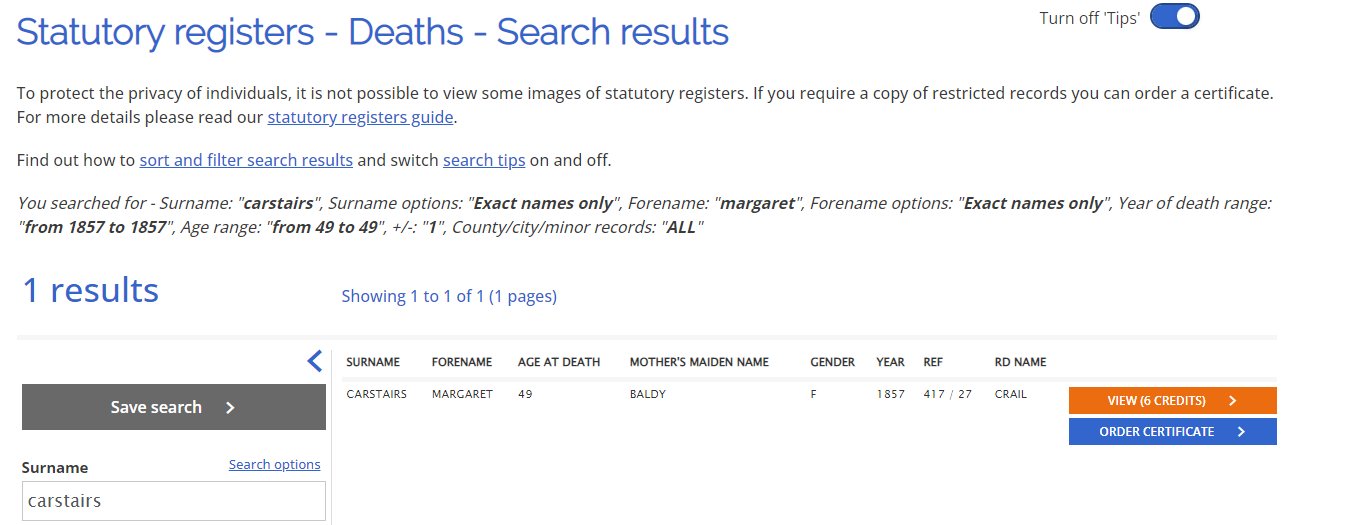
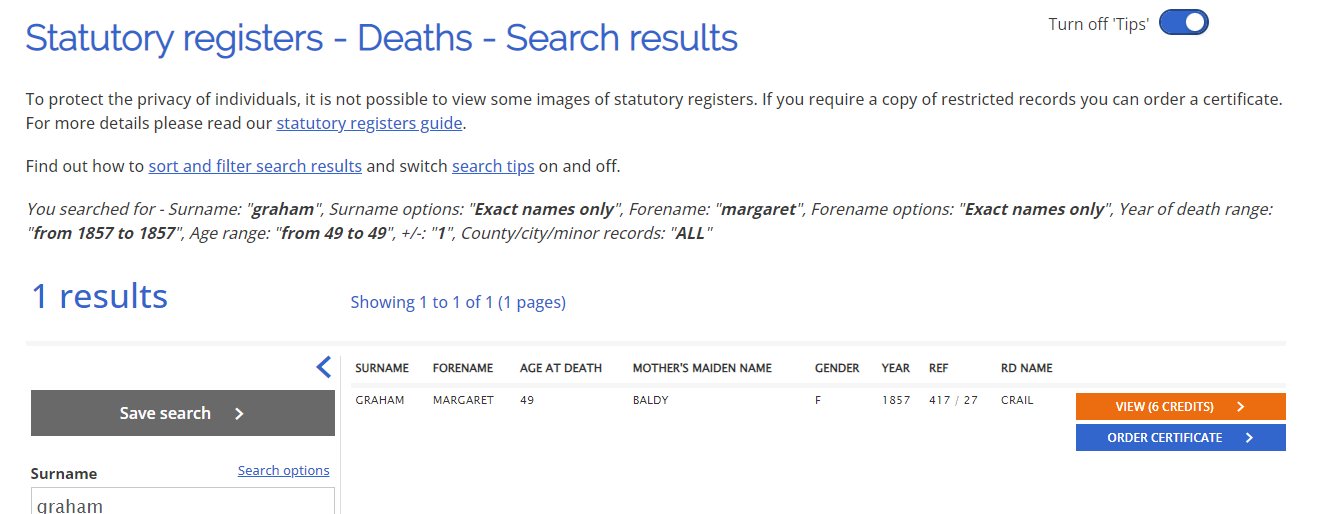
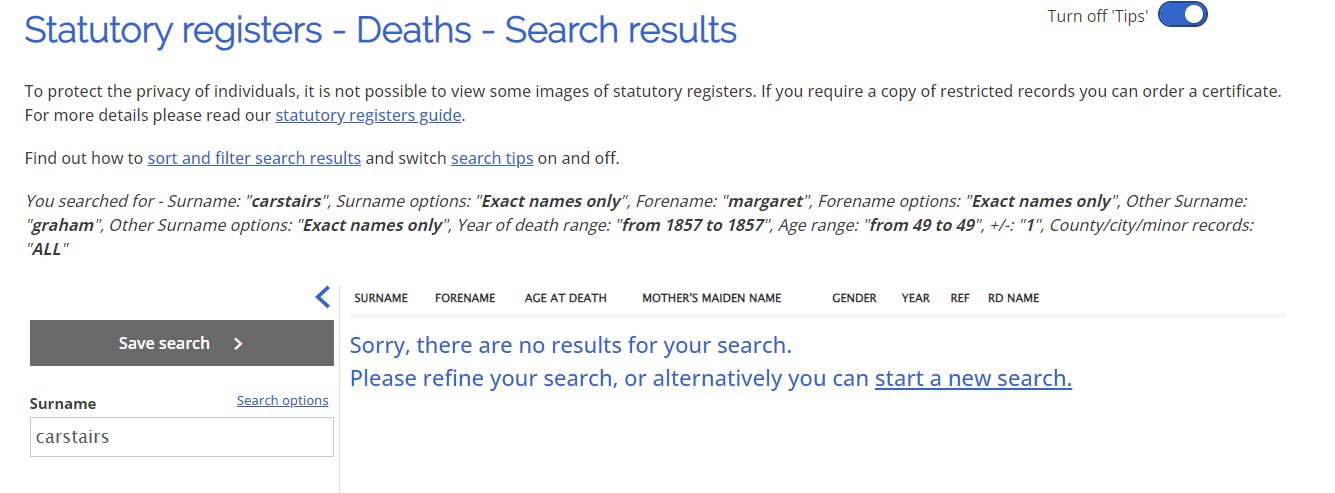
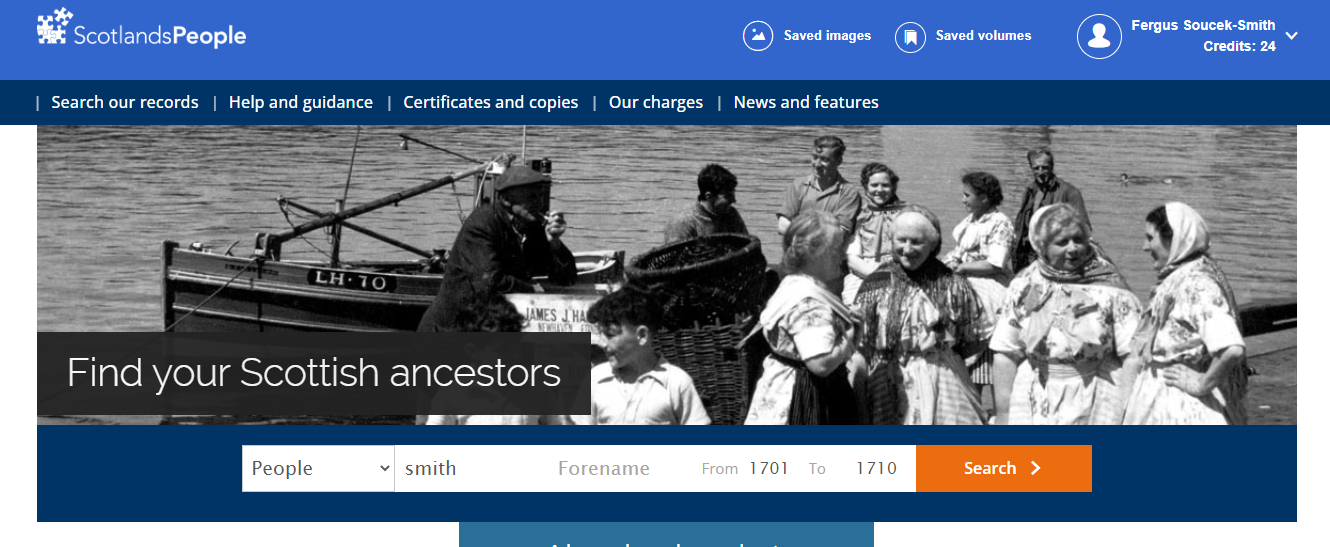
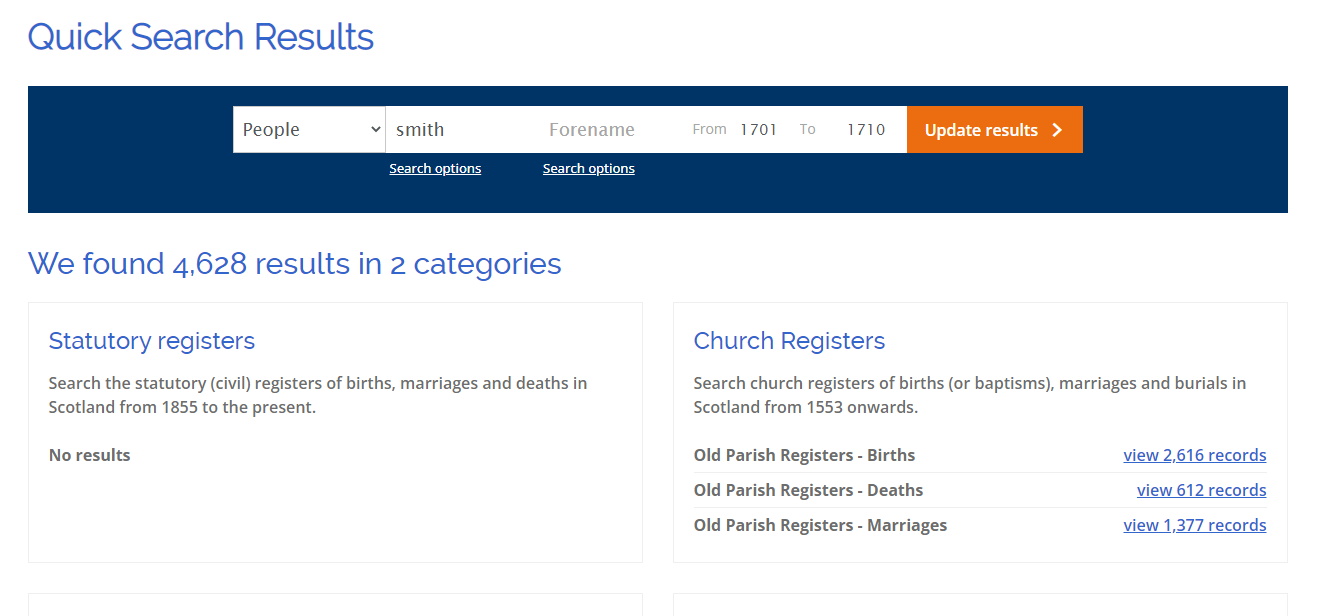

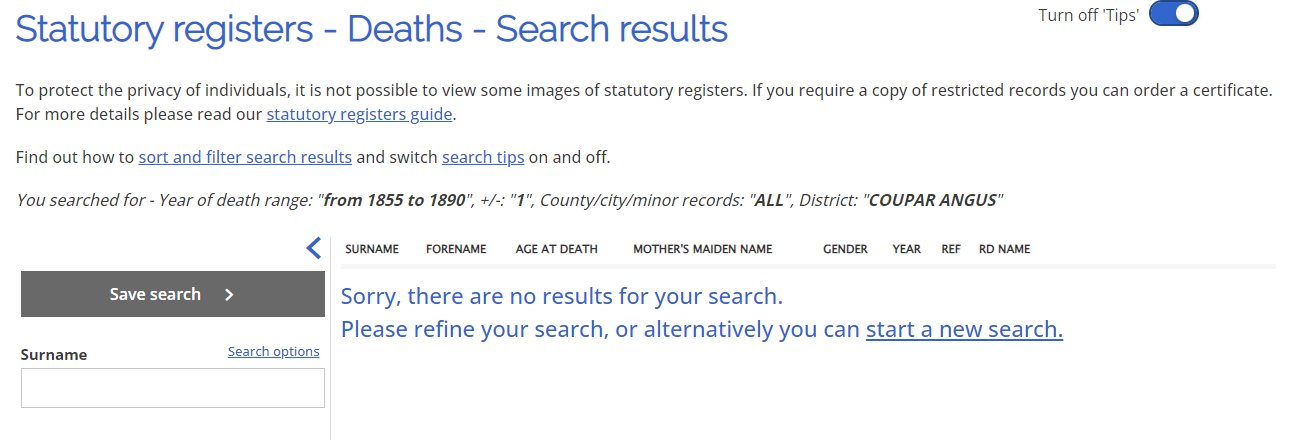
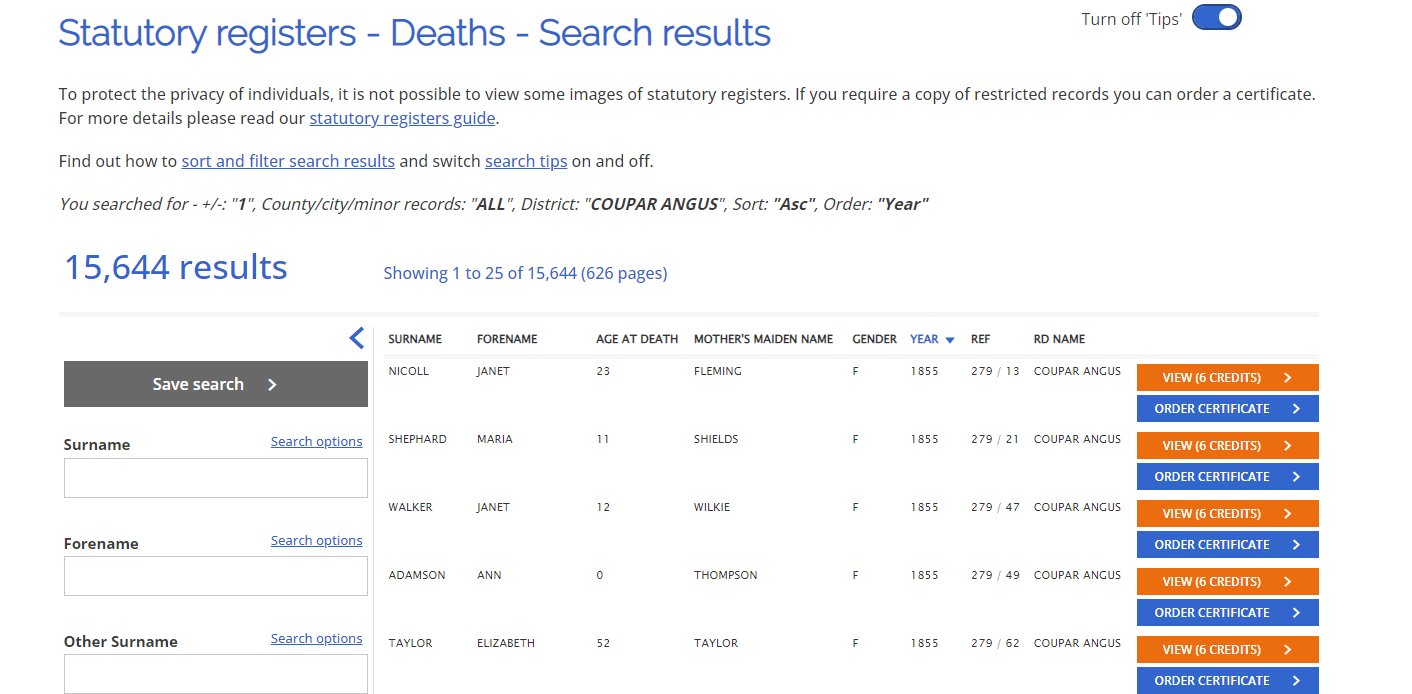
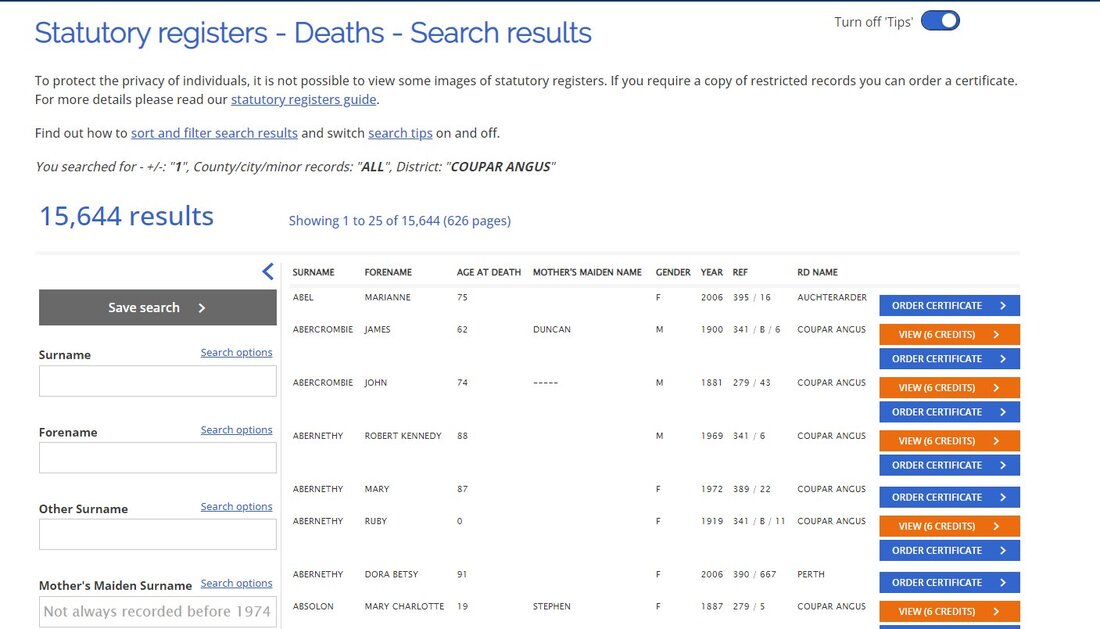
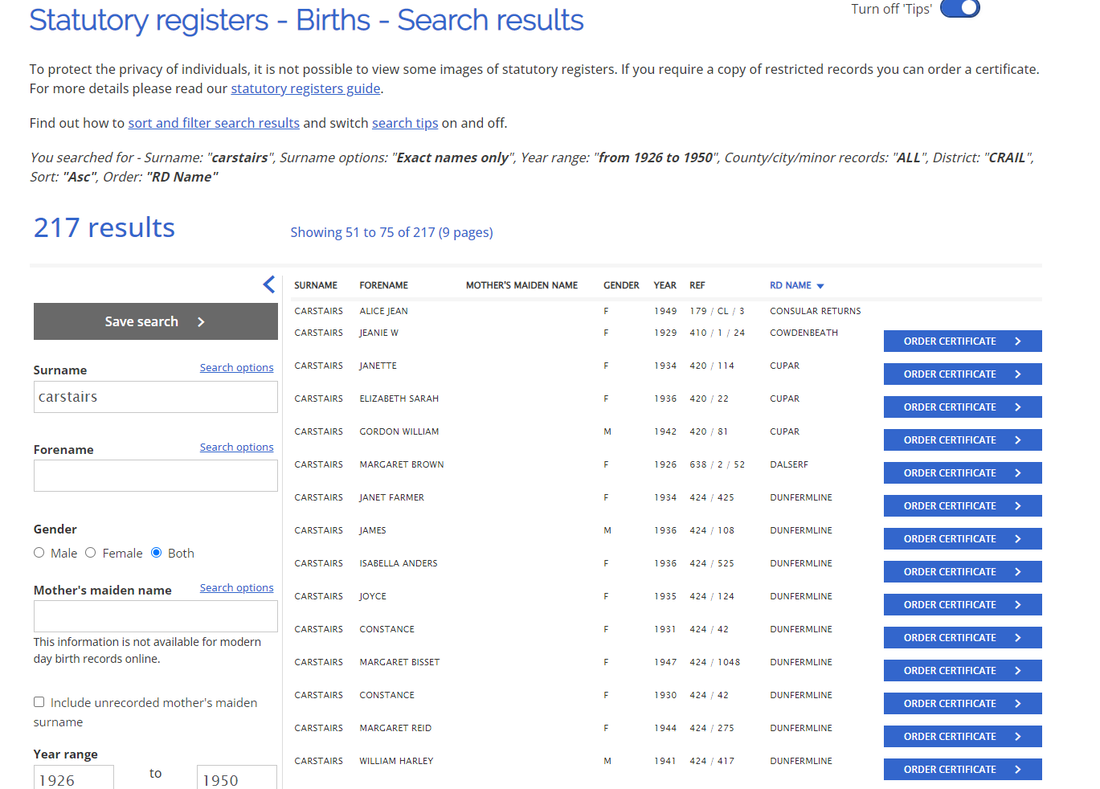
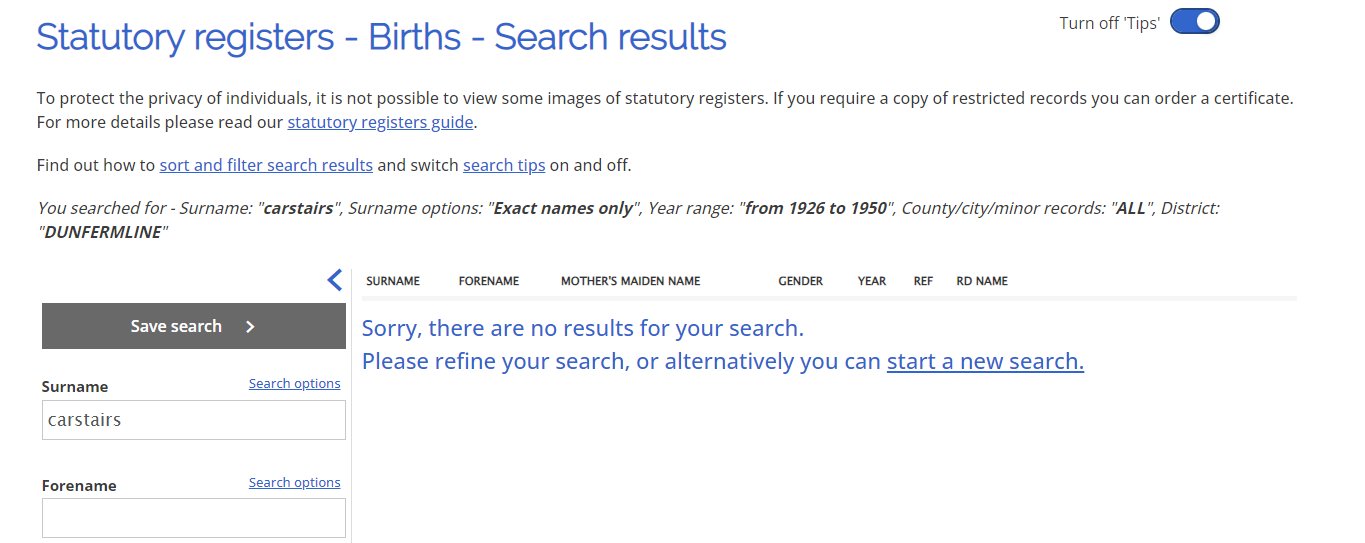
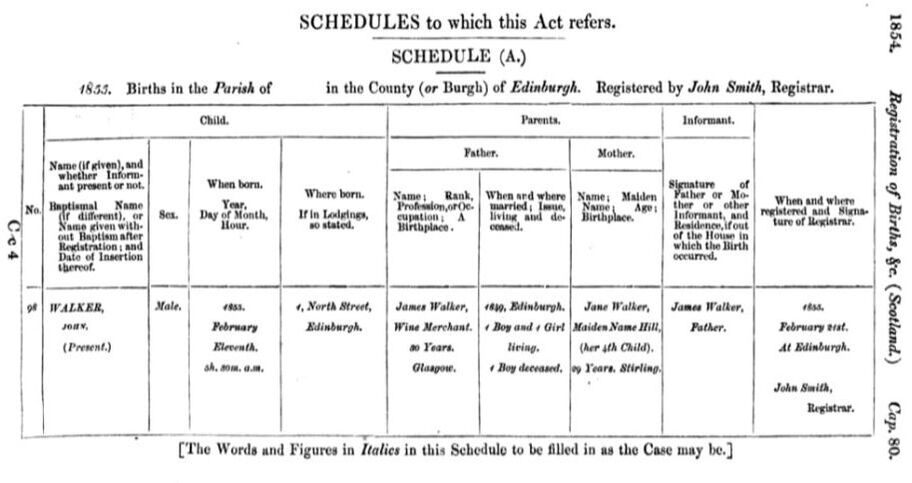
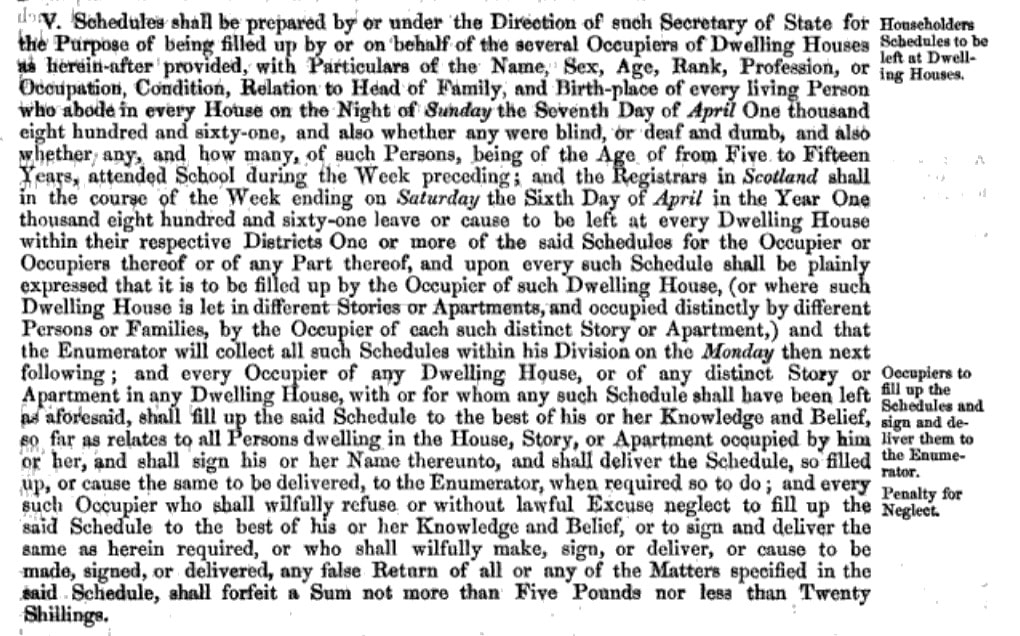
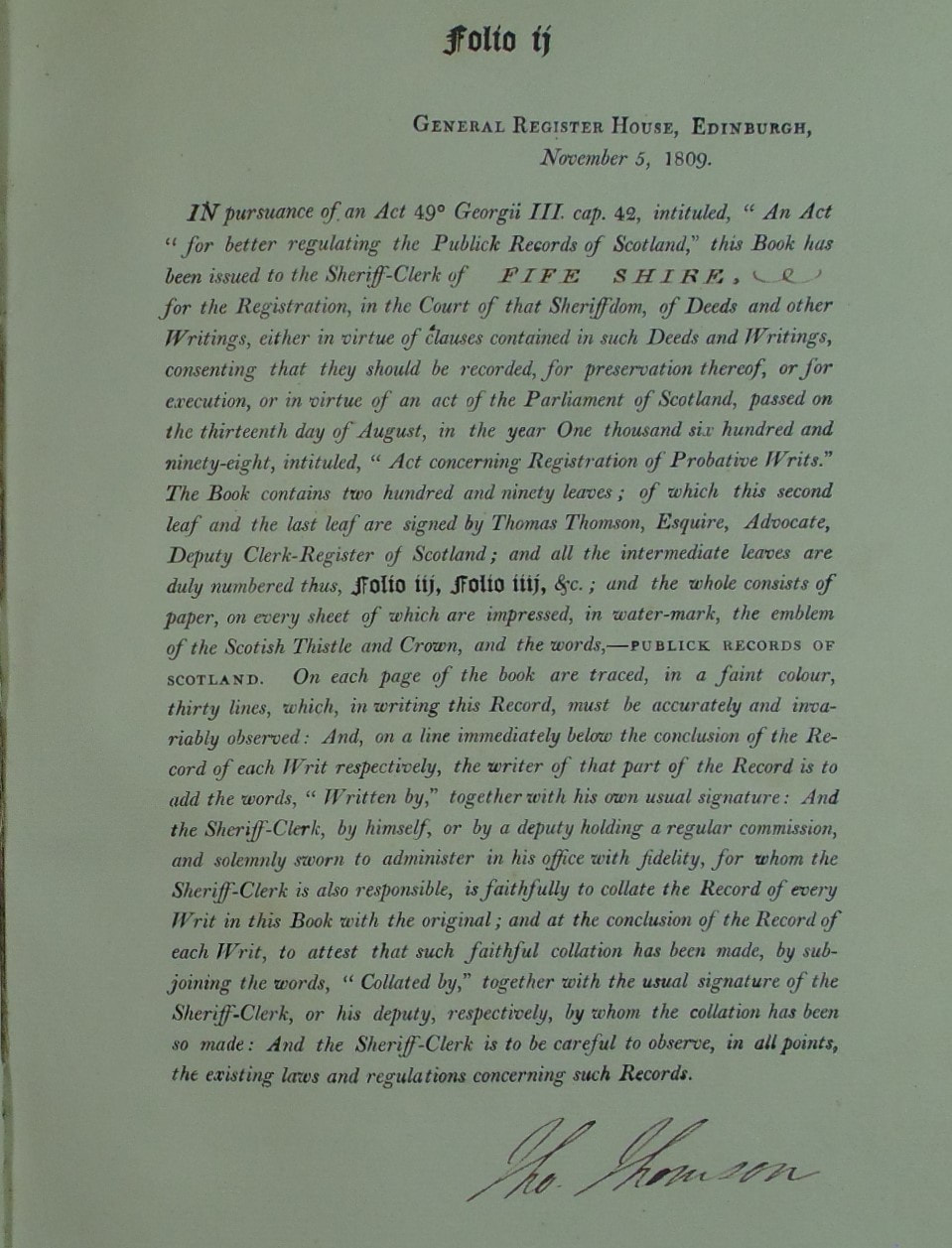

 RSS Feed
RSS Feed
